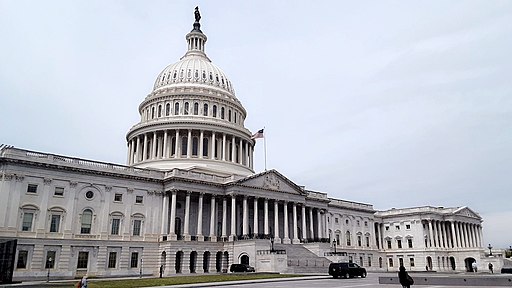On March 23, 2021, Sen. Patty Murray (D-Wash.) and Rep. Bobby Scott (D-Va.) introduced companion resolutions in the U.S. Senate and U.S. House of Representatives under the Congressional Review Act (CRA) to block a rule published by the Equal Employment Opportunity Commission (EEOC) near the end of the Trump administration.
The rule, published in the Federal Register six days before Joe Biden’s (D) inauguration, aims to improve transparency and consistency in the EEOC’s conciliation process, according to the text of the rule. Conciliation is a voluntary process Congress created with Title VII of the Civil Rights Act of 1964. The process requires the EEOC to try to work out settlements with companies instead of relying on litigation in federal courts when the agency finds that there is reasonable cause to believe the employer discriminated or retaliated against an employee.
The text of the rule defends changing conciliation procedures, arguing that nearly a third of companies refuse to participate in conciliation after they receive a notice that the EEOC has reasonable cause to suspect discrimination or retaliation. The agency argued that the new rule might allow the agency to resolve more issues through conciliation instead of through lawsuits.
Those who oppose the new conciliation rule argued that the new procedures could favor employers over workers, violate a 2015 U.S. Supreme Court ruling, and undermine the EEOC’s ability to prevent and remedy perceived discrimination.
The EEOC approved the rule on a party-line 3-2 vote on January 7, 2021. After Biden nominated Charlotte A. Burrows to chair the agency on January 20, an EEOC spokesperson told Bloomberg Law that “Overturning this rule through the Congressional Review Act would strengthen the federal government’s ability to protect civil rights.”
The Congressional Review Act gives Congress a chance to review and reject any new regulatory rules created by federal administrative agencies. Both houses of Congress have to pass a resolution disapproving the EEOC rule and President Biden would then have to sign that resolution into law to block the rule. Since the law’s creation in 1996, Congress has used the CRA to repeal 17 out of the over 90,767 rules published in the Federal Register during that time.
The EEOC rule went into effect on February 16, 2021. A recent edition of the _Congressional Record_ clarified that Congress has 60 days from February 3, 2021, to use the CRA to block regulatory activity taken near the end of the Trump administration.
To learn more about the Congressional Review Act and its use, see here: https://ballotpedia.org/Congressional_Review_Act
Want to go further? Sign up today for our Learning Journey on the Congressional Review Act: https://ballotpedia.org/Journey:_Congressional_Review_Act
Additional reading:
- Final Rule
- Rulemaking
- Midnight rulemaking
- Administrative State
- Easter deadline to use Congressional Review Act to repeal end-of-term Trump administration regulatory activity (2021)
Link to the U.S. Senate CRA resolution:
Link to the U.S. House of Representatives CRA resolution:
Text of the EEOC rule:
EEOC press release:
https://www.eeoc.gov/newsroom/eeoc-publishes-final-conciliation-rule
Bloomberg Law article:
https://news.bloomberglaw.com/daily-labor-report/democrats-3
Link to the Congressional Record:
https://www.govinfo.gov/content/pkg/CREC-2021-02-03/pdf/CREC-2021-02-03-house.pdf


